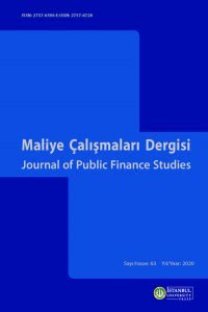İrlanda’da Yüksek Denetim
İrlanda Sayıştay’ı, İrlanda idari yapısı içerisinde Anayasal bir kurum olarak yer almaktadır. Ofis Tipi yapıya sahip olan Sayıştay, tarihi bağları nedeniyle, İngiltere (Birleşik Krallık) Sayıştay’ı ile benzerlik göstermektedir. Ancak bu benzerlik anayasallık çerçevesinde farklılaşmaktadır. Zira Sayıştay’ın bağımsızlığı ve çalışma esasları, İngiliz uygulamasından farklı olarak, açıkça İrlanda Anayasası’nda güvence altına alınmıştır. Anayasa haricinde Sayıştay’ın yasal dayanağını 1866 tarihli İngiliz Sayıştay Yasası, 1923 ve 1993 tarihli Genel Denetçi Yasası ve 1998 tarihli Komptrolör ve Genel Denetçi ve Parlamento Komiteleri Yasası oluşturmaktadır. Sayıştay, teşkilat yapısı bakımından Genel Denetçi tarafından yönetilmekte ve gerek yasama gerekse yürütme ile olan ilişkilerini raporlar aracılığıyla kurmaktadır. Sayıştay’ın görevi kamu kurumlarının hesaplarını denetlemek ve raporlamak; kurumlara tahsis edilmiş olan kaynakların amaçlarına uygun kullanılıp kullanılmadığını tespit etmek; her bir kamu kurumunun kaynaklarını iktisadi ve etkin kullanıp kullanmadığını incelemektir. Bu çalışmada İrlanda Sayıştay’ının mevcut yapısı dikkate alınarak başlattığı modernleşme çabaları araştırılmıştır.
Anahtar Kelimeler:
Sayıştay, Yüksek Denetim, Performans Denetimi, İrlanda
SUPREME AUDIT IN IRELAND
The Irish SAI is located in the Irish administrative structure as a constitutional institution. The SAI that is formed as the Office Type is similar to the British (United Kingdom) SAI due to the historical ties. However this similarity becomes different within the framework of constitutionality. The main reason for this is that the SAI’s independence and working principles are clearly guaranteed by the Constitution of Ireland unlike the British practice. The exception of constitution the SAI’s statutory provisions are Exchequer and Audit Departments Act 1866, Comptroller and Auditor General Act 1923-1993 and Comptroller and Auditor General and Committees of the Houses of the Oireachtas Act 1998. In the terms of organizationalstructure the SAI is governed by The Comptroller and Auditor General and establishes its relations both and the executive and legislative through the reports. The SAI’s role is audit and report on the accounts of public bodies, establish that funds are applied for the purposes intended and examine whether each body administers its resources economically and efficiently. Modernization efforts are initiated by the Irish SAI that taking into account the existing structure was investigated in this paper.
Keywords:
Supreme Audit Institution, Supreme Audit, Performance Audit, Ireland,
___
- About the Office, (Erişim tarihi: 25 Mayıs 2011). (http://www.audgen.gov.ie/viewdoc.asp?fn=/documents/about/organisation/about.htm) Alverez-Antolinez, Carlos (2007), Leadership, Structures and Accountability in the Public Service, Institute of Public Administration, Dublin.
- Barzelay, Michael (1997), “Central Audit Institutions and Performance Auditing: A Comparative Analysis of Organizational Strategies in the OECD”, An International Journal of Policy and Administration, Vol: 10, No: 3, ss. 5-56.
- Bourn, Sir John (2007), Public Sector Auditing: Is it value for money?, John Wiley & Sons Ltd, England.
- Boyle, Richard (1998), “Governance and Accountability in the Irish Civil Service”, Governance and Accountability in the Irish Civil Service, Committee for Public Management Research Discussion Paper 6, Ireland.
- Comptroller and Auditor-General Act (1923), (Erişim tarihi: 08 Aralık 2011). (http://www.irishstatutebook.ie/1923/en/act/pub/0001/print.html)
- Comptroller and Auditor General (Amendment) Act (1993), (Erişim tarihi: 08 Aralık 2011). (http://www.irishstatutebook.ie/1993/en/act/pub/0008/print.html#sec9)
- Comptroller and Auditor General and Committees of the Houses of The Oireachtas (Special Provisions) Act (1998), (Erişim tarihi: 08 Aralık 2011). (http://www.irishstatutebook.ie/pdf/1998/en.act.1998.0047.pdf)
- Constitution of Ireland – Bunreacht Na hÉireann, (1937), (Erişim tarihi: 25 Mayıs 2011). (http://www.taoiseach.gov.ie/attached_files/Pdf%20files/Constitution%20of%20Ireland.pdf)
- Electoral Act Number: 25 (1997), (Erişim tarihi: 25 Mayıs 2011). (http://www.oireachtas.ie/documents/bills28/acts/1997/a2597.pdf)
- General Description of the Responsibilities of the Board Members and Chief Executive (or similar person) of State Bodies and the Comptroller and Auditor General, (Erişim tarihi: 13 Mart 2012). (www.audgen.gov.ie)
- Gözübüyük, Şeref (2000), Anayasa Hukuku, Turhan Kitabevi, Ankara.
- Karaman, Füsun ve Aral, Cem Suat (2002), “Avrupa Birliğine Adaylık Sürecinde Sayıştay”, Sayıştay Dergisi, Sayı 46-47, ss. 43-82.
- Köse, H. Ömer (2007), Dünyada ve Türkiye’de Yüksek Denetim, T.C. Sayıştay Başkanlığı 145. Yıl Yayınları, Ankara.
- Maher, Neva (2004), “How the Supreme Audit Institution Should Perform and is to Be Managed for External Audit – Independent SAI as a Precondition for Four Pillars”, NISPAcee Occasional Papers in Public Administration and Public Policy, Volume: V, No: 1, ss. 15-34.
- OECD (Organisation and Economic Co-Operation and Development) (2002), Relations Between Supreme Audit Institutions and Parliamentary Committees, Sigma Papers No: 33, OECD Publishing, Paris.
- Office of the Comptroller and Auditor General (2010), Corporate Report, (Erişim tarihi: 18 Aralık 2011). (http://www.audgen.gov.ie/documents/corporate%20reports/CorpReport_2010_En.pdf)
- Office of the Comptroller and Auditor General, Statement of Strategy 2012-2014, (Erişim tarihi: 06 Nisan 2012). (http://www.audgen.gov.ie/documents/miscreports/Office_of_the_Comptroller_and_Auditor_General_–Statement_of_Strategy_2012-2014.pdf)
- Peer Review of the Office of the Comptroller and Auditor General (2008), (Erişim tarihi: 25 Mayıs 2011). (http://audgen.gov.ie/documents/miscreports/Peer_Review_2009.pdf)
- Wilkins, Peter and Boyle, Richard (2011), “Standards and Quality”, Performance Auditing: Contributiong to Accountability in Democratic Government, (Eds. Jeremy Lonsdale, Peter Vilkins, Tom Ling), Edward Elgar Publishing, UK.
- http://audgen.gov.ie
- http://www.nao.org.uk/
- ISSN: 2757-6396
- Başlangıç: 1955
- Yayıncı: İstanbul Üniversitesi
